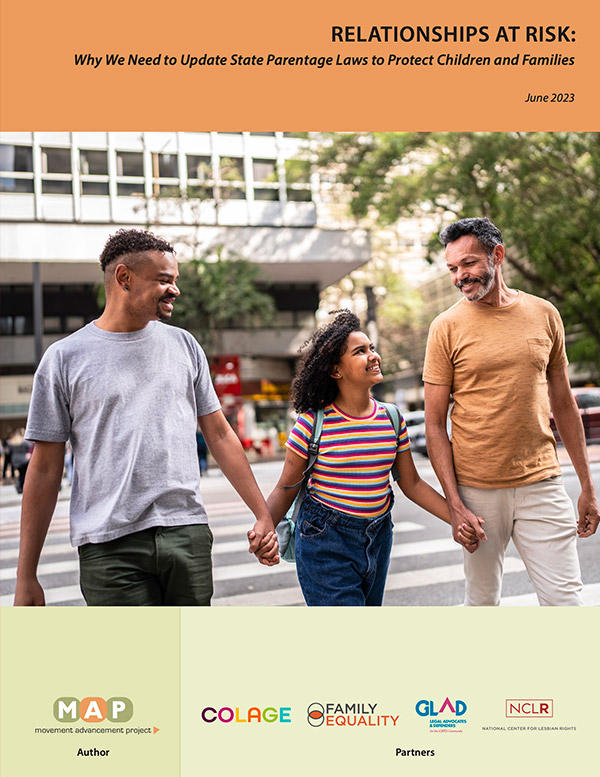"Relationships at Risk: Why We Need to Update State Parentage Laws to Protect Children and Families"Download Report
Five leading national organizations that advocate for LGBTQ families joined forces on a new report, Relationships at Risk: Why We Need to Update State Parentage Laws to Protect Children and Families: Movement Advancement Project (MAP), COLAGE, Family Equality, GLBTQ Legal Advocates & Defenders (GLAD), and NCLR. The report explains how the current patchwork of parentage laws across the country – many of which haven’t been updated in decades – leaves LGBTQ parents and their children vulnerable. Nearly 1 in 3 LGBTQ adults in the U.S. are raising children under the age of 18, many of them in states that still have outdated laws. This means that far too many LGBTQ parents’ legal connections to their children are potentially at risk. Parentage is the legal relationship between a child and their parents, which is essential to children's security and well-being. Parentage is crucial so that parents can make critical healthcare and education decisions for their children, and so that children have access to important benefits including insurance coverage, social security survivor benefits and inheritance. Legal parentage also ensures a child does not lose their important connection to a parent in circumstances such as the death of one parent or a change in the adult relationship between the parents. The report also details the following:
- Seven key pathways to establishing parentage, which are only available in certain states to LGBTQ families.
- Recent examples of modernized parentage laws in states like Rhode Island, Connecticut, and Colorado.
- Recommendations for all states to update and improve parentage laws, which include: recognizing the diversity of families and ensure recognition of parents in children’s lives, improving access to protections and more consistency from state to state, streamlining the process of adoption to secure children to their parents, and more.
Recommended citation format:
Movement Advancement Project. June 2023.
Relationships at Risk: Why We Need to Update State Parentage Laws to Protect Children and Families. https://www.mapresearch.org/2023-parentage-report.


